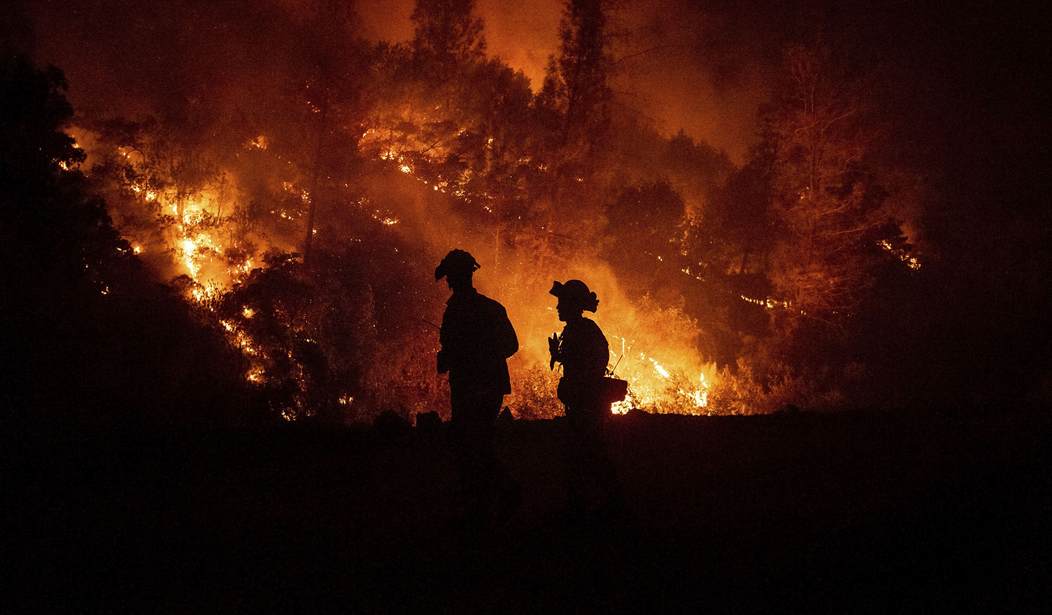Last year I wrote a couple posts about the decline of the California insurance market. Major insurers like State Farm and Allstate announced they would continue doing business with existing customers but wouldn’t write any new policies. Farmers Insurance said they would cap the number of new policies they would write per month. Those are three of the top four insurers in the state. Several of the smaller ones simply announced they were leaving California.
All of this matters because unless you were able to pay cash for your home, and lets face it very few people can do that, the bank holding your mortgage requires you to have insurance for their protection. If you can’t get a policy you can’t buy a house.
Why is all of this happening? The newspapers love to blame it on climate change and there’s definitely truth to the fact that California went through years of drought which contributed to some really tremendous wildfire damage. For instance, the Camp Fire in 2018 killed 88 people and destroyed 18,000 structures. Around $12 billion of the damage was insured, a huge amount of money connected to a single incident.
But there’s more to the story. California also has regulations limiting the ability of insurers to raise rates.
California is the only state that won’t allow insurers to use rising reinsurance costs to justify rate-hike requests. It’s also the only state that won’t let insurers base their requests on projections of rising costs. Regulators look backward at claims experience over the previous 20 years. So even though climate change is likely to cause more losses from wildfires, mudslides and the like, the state excludes it from consideration. Proposition 103, passed in 1988, allows public interest groups to contest requests for hikes of 7 percent or more. That drags out and sometimes stymies the approval process. Delays in the process are especially costly when inflation is running hot.
It’s a no win situation for insurers. Yesterday, another insurer announced it would pause writing any new policies in the state:
The Hartford Financial Services Group Inc. will stop offering new California homeowners policies starting in February. Included in the cut is Hartford’s joint homeowners insurance program with AARP. Those with existing policies, meeting the company’s underwriting guidelines, will continue to be renewed.
The California-specific change is due to “unique challenges that have required us to reconsider the viability of writing new homeowners’ business in the state,” according to a statement from Hartford. “Based on these challenges and our analysis of the trends, we have decided to stop offering new homeowners policies.”
California does offer an insurer of last resort system for fire insurance and there are now 350,000 people relying on it.
The fire insurance premium for Bill King’s home has risen 145% since 2017—from $399 to $979—under the California FAIR Plan, the state’s last option for homeowners seeking fire insurance…
“What do I do?” asked King, a retiree who will turn 70 years old this summer. “Do I move out of California? At some point I’m going to have to look at things. … Will I be able to face future increases depending on how long I’ll live?”…
Recently, King found he was unable to pay for his policy renewal online, as he usually does. He couldn’t email the FAIR Plan because the plan’s website does not provide an email address. Instead, the website tells homeowners to contact their insurance brokers. King’s broker found out that he had been assigned a new policy number without his knowledge. He barely had time to send a payment via his broker, putting him dangerously close to cancellation. Based on his individual experience, King has concluded that the FAIR Plan “is doing everything it can to help policies lapse.”
California’s plan to solve this is a new regulation requiring insurers to write fire insurance plans in areas with a high risk of wildfires. In short, a mandate. Will it work or will it lead more insurers to back out of the state? I don’t think anyone involved knows for sure what is going to happen next.








Join the conversation as a VIP Member